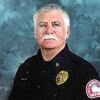Emergency response during the holidays can be the most challenging of the year. Increased focus, heightened emotions and historical stressors can create a difficult situation for any firefighter on scene of a holiday incident.
Christmas, Hanukah, Kwanzaa, New Year’s, 4th of July, Cinco de Mayo, Halloween or a simple birthday party — any holiday in any culture for any reason can be a major cause for increased trauma, physical or otherwise.
Statistically, heart-related deaths increase by 5 percent during the holiday season and fatal heart attacks peak on Christmas and the day after. Holiday candles are a direct cause for the majority of the over 15,000 open-flame related home fires each year.
Holidays reflect a change in environment. Traditions, symbolic decorations, expensive gifts, extensive costuming and all types of libations contribute to a different atmosphere. Add to this increased civilian travel and expenditures, intense dealings with family and friends and the eventual culmination of the event itself, and you have the formula for increasing stress.
Stressed out
As firefighters we know the holidays can be a particularly stressful time, both in the station and out on calls. When responding, remember that you are dealing with civilians who are even more stressed; otherwise, they wouldn’t have called you.
Understanding this allows for greater patience when dealing with them as well as other initial responders such as utility supervisors, contractors and general wage earners such as night managers, bartenders, cabbies and store clerks.
During the holidays, situations are heightened and compressed. Short-term stress is dealt with quickly and efficiently and with little self-examination, hence the propensity for celebration. Long-term and poorly handled stress can lead to aberrant behavior resulting in the need for an emergency response.
Regardless of conditions, never assume the scene is secure. Increasing security for firefighters and equipment becomes a primary focus when entering a holiday event as excited children and intoxicated adults can redirect attention and delay tactics.
Added confusion
Imagine you are called to a large assembly like a mall, theater or arena. As with all emergencies, a holiday response strategy begins with scene control even when the environment is exaggerated.
Likewise, situational awareness takes on a heightened priority as the actual incident may not be reflected in dispatch information and getting the story on scene may be blurred by merriment, gossip or people wandering.
Again, if not large in actual size, the emergency scene will have people in a gathering greater than they experience in routine life. Individuals unfamiliar with names or their whereabouts may add to the confusion, whether it is locating a hazard or a victim.
A straightforward holiday emergency call can quickly escalate as you and your fellow firefighters become the objects of celebration. Most districts will send law enforcement to any dispatched fire call during the holidays if possible, but always keep an ear out for radio confirmation.
Busy work
Without immediate scene control and enforcement capabilities, it is difficult managing any incident involving a holiday or celebration. The best you can hope for while working in the center of attention is an effective division of labor leading to progress and the lowering of civilian chaos.
To disarm this garnered attention, confirm people remaining in the response area (relatives, classmates, business associates, etc.) are neutral and not a situational contributor. If needed, give them assignments such as taking care of others, securing personal items and initiating any type of action that requires accountability.
When agitated for whatever reason, any large group can delay a medical call, investigation or suppression activities, regardless. Evacuation is the preferred action but may not be realistic due to limited resources. Sometimes no interaction is an effective interaction.
Know your place
As a firefighter, stay focused on your assignment and do not reference the holiday in any way. A wrong perception from someone without proper perspective could jeopardize care of patients or tasks.
Your experiences are not theirs and expressing an opinion, good or bad, could set them off and apart, further complicating an already difficult situation. You could immediately, and for no apparent reason, become the motivation for sadness, anger or worse. There is a real difference between “It’s that time of year” and “It’s a great time of year.”
Finally, checking egresses and keeping an eye out for suspicious behavior should always be a footnote to the holidays. Crime, particularly thefts, vehicular violations and vandalism, increases during holiday seasons. Add location calls for domestic offenses and you have probable cause for heightened awareness during any holiday incident response.
During the holidays our reliance on socialized behavior inspires us to celebrate with family and friends. If you should find yourself on duty however, enjoy the opportunities to experience other cultures and customs. But always remember — you are on duty and holidays have history.


